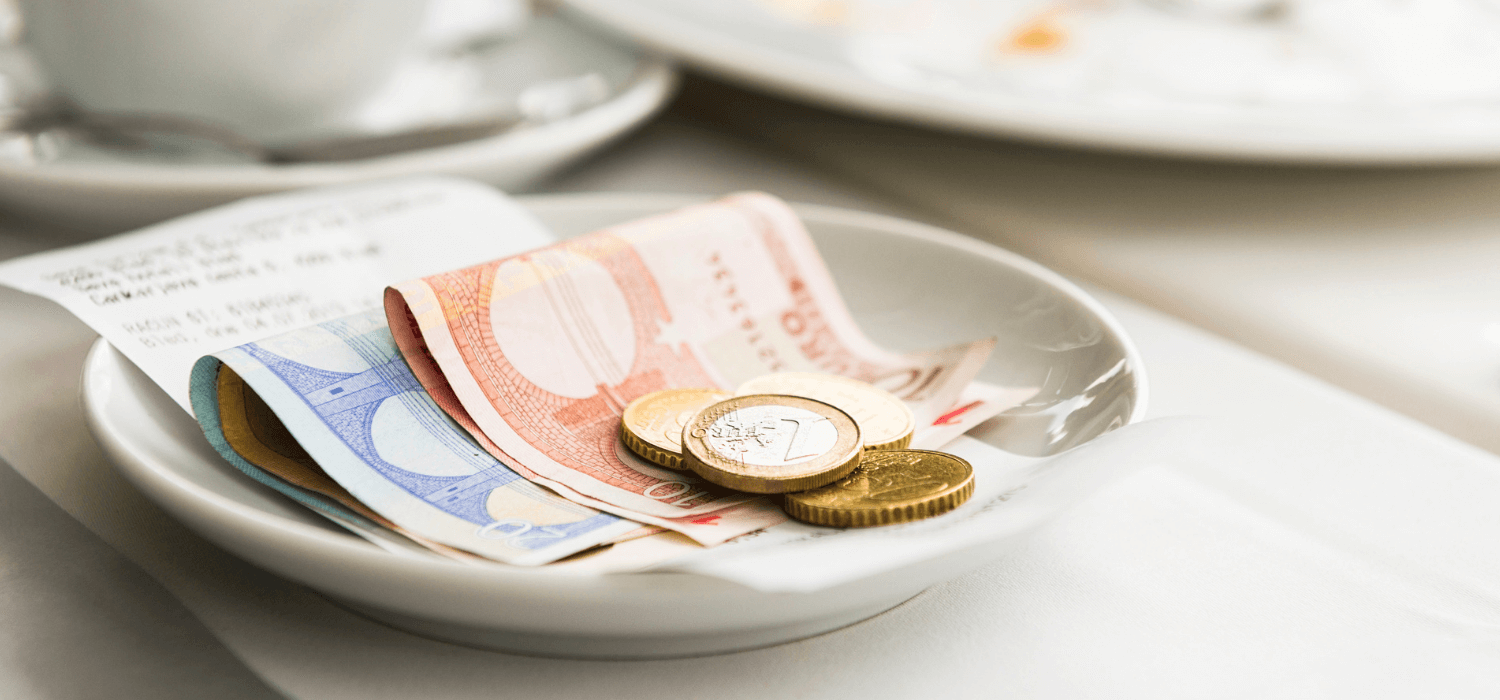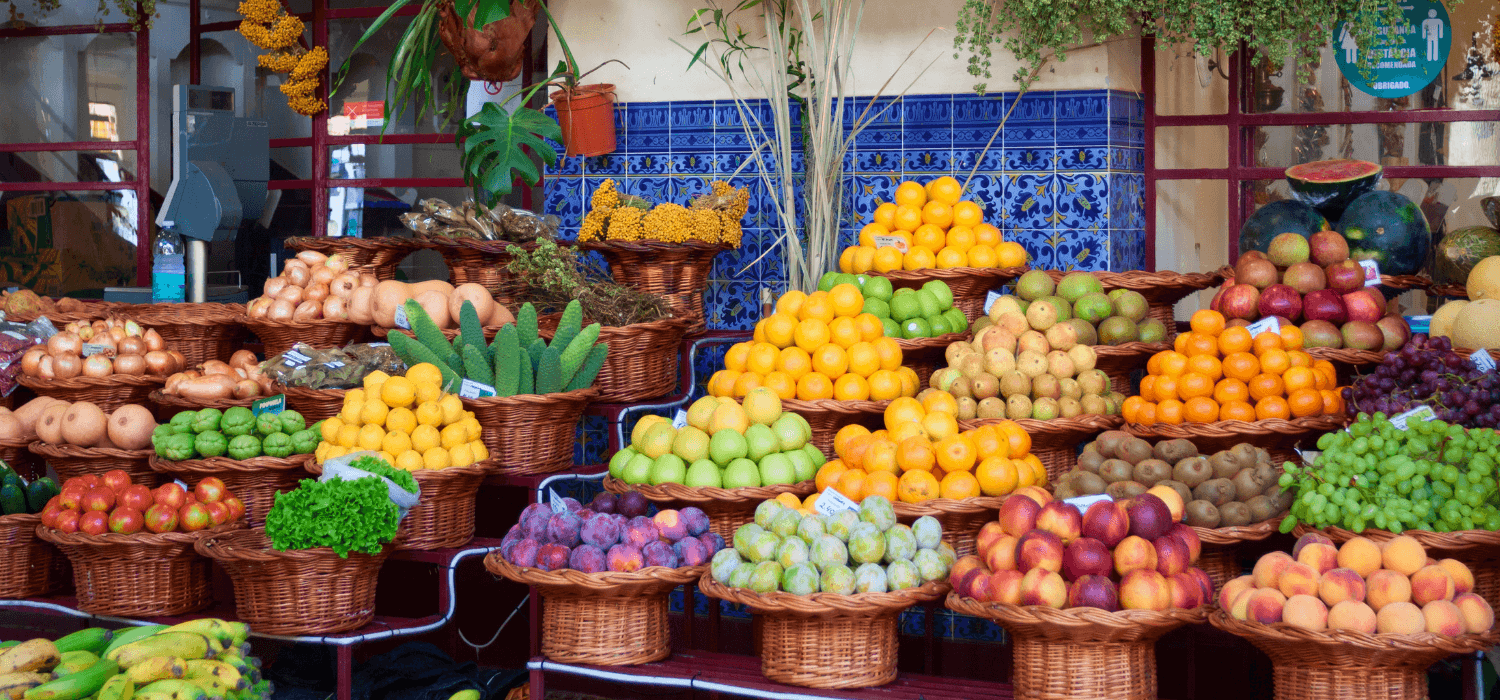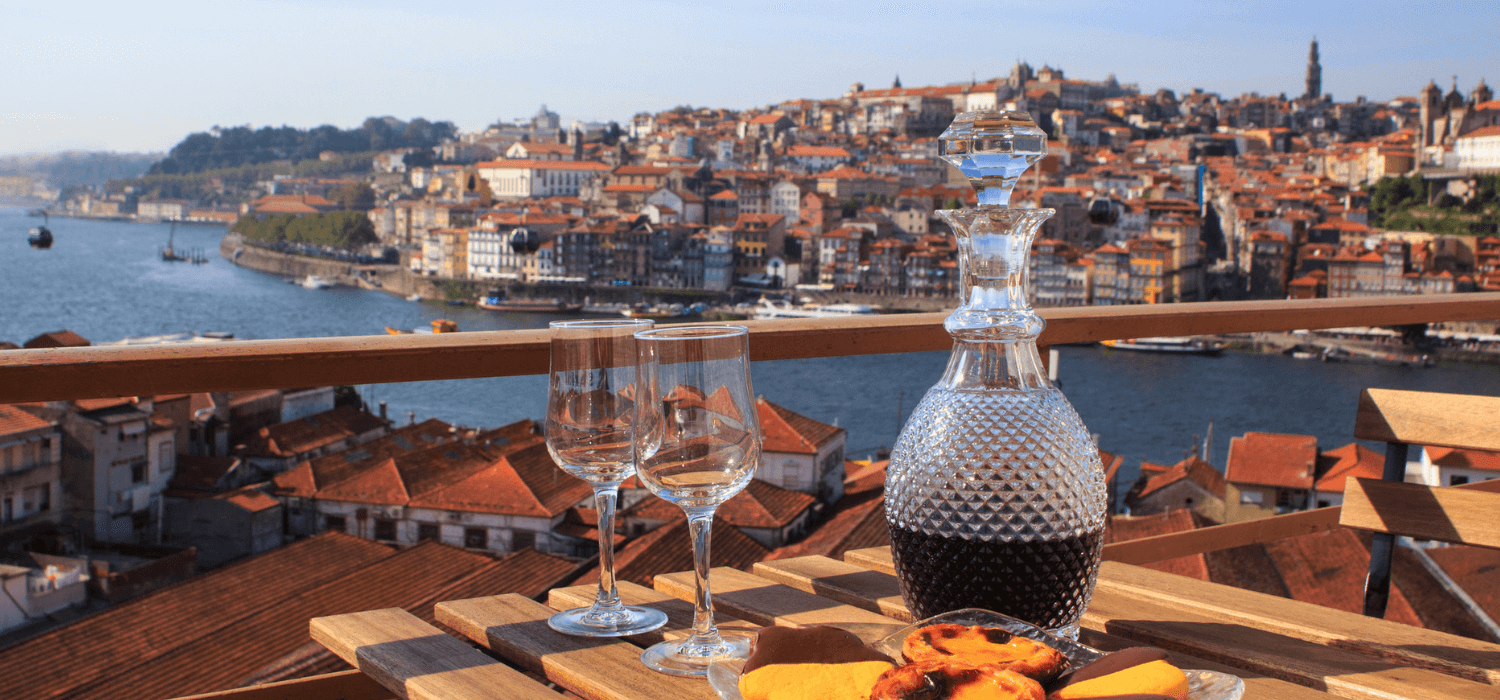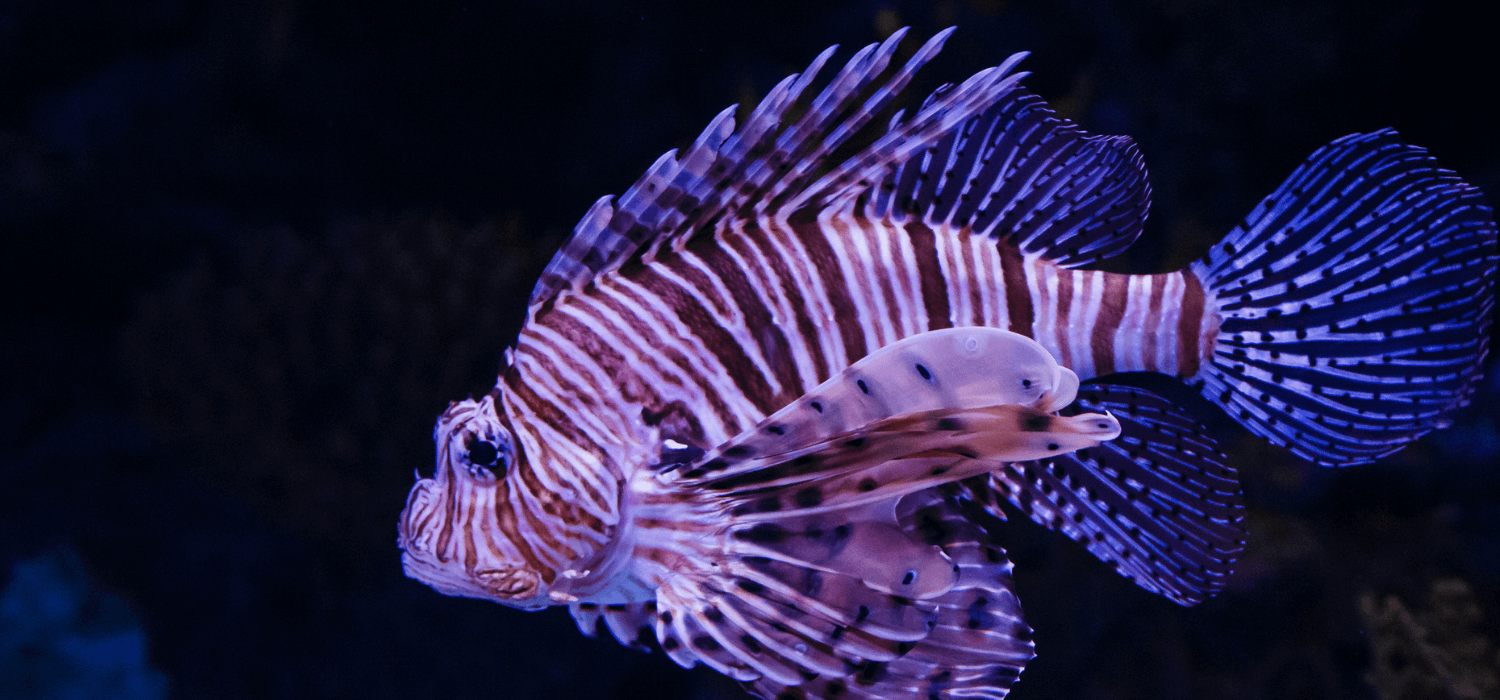Travel Money in Portugal
What is the official currency in Portugal?
The currency of Portugal is the Euro (EUR). One EUR is equal to 0.83 GBP (as of 19 January 2022). So, in Portugal, you’ll see the symbol € to denote prices. Note: you can check the European Central Bank website for the EUR’s latest value against GBP.
Each Euro comprises 100 cents. Cents are available in eight different coins: 1, 2, 5, 10, 20, and 50 cents. Meanwhile, Euro banknotes come in seven denominations: 5, 10, 20, 50, 100, 200, and 500 Euros. Plus, you’ll find 1 and 2 Euro coins.
Do I tip in Portugal?

In Portugal, it’s neither customary nor obligatory to tip at restaurants, cafés, bars, and spas. But you can round up to the nearest €1 and leave a tip, as a token of appreciation for service that exceeds your expectations.
In some restaurants, service charge is included in the bill. So, keep in mind to check for such inclusions, before you decide whether or not to tip any further. If you dine at an upmarket eatery, which delivers an equally upmarket experience (exemplary food and service), staff will happily welcome a tip – usually 5 to 10 percent of the total, or you may simply round up to the nearest Euro. For example, if a meal amounts to €47, pay the amount via your Caxton card or debit/credit card, and feel free to pay €3 in coins to ensure waiters and waitresses receive these tips.
Using cash in Portugal

Our experts recommend that you take some cash with you abroad – necessary for any visits to villages and remote destinations, taxi rides, and purchases at small shops and market stalls; instances where card is typically not accepted.
How to use the Caxton pre-paid travel card?
You can transfer the rest of your holiday spending money to a Caxton pre-paid travel money card – for safe and secure spending.
Most international banks and card providers charge a fee for you to use their ATM machines. With a free Caxton pre-paid travel money card, you can open and access an account via our website or mobile app. Through either platform, you can top up your Caxton pre-paid travel money card and lock in favourable exchange rates – both ahead of travel.
On arrival in Portugal, you can spend in chain and upmarket supermarkets and restaurants in Euros – using your Caxton card, at any outlet that accepts MasterCard (simply look out for the logo). And you can enjoy no international fees, when you use said card to withdraw cash from ATMs (known as Multibanco in Portugal); regardless of the sum or number of times you need to use the card.
We recommend that you also take your bank card with you on a trip, as a backup option. If you do so, remember to inform your bank prior to travel – so any overseas transactions are permitted and not identified as fraudulent. Note: all major bank cards are widely accepted in towns and cities, notably in Portuguese tourist hotspots. But keep in mind that any such bank card transactions will incur fees and high exchange rates.
The price of food and drink in Portugal

As a rough guideline, below is a list of the average costs of spending in a day in Portugal.
• Domestic beer = €5.06
• One-way ticket on local bus = €1.50 to €2
• Inexpensive restaurant meal = €8 per person
• Bottle of mid-range wine = €4
• Bottle of water (1.5 litres) = €0.96
What happens if my wallet is lost, stolen, or damaged in Portugal?
Portugal is known to be a safe country with friendly and helpful people. But this shouldn’t stop you from being smart while you travel.
Of course, this doesn’t mean that you shouldn’t be careful. If the majority of your cash is on your Caxton pre-paid travel money card, this will be automatically protected as you can instantly block your card on the app. However, in the worst-case scenario, here is a list of major debit/credit cards’ phone lines for you to call from outside the UK:
- Caxton: +44 207 201 0526
- HSBC Bank UK: +44 1442 422 929;
- NatWest: +44 1268 500 813;
- Lloyds: +44 1702 278 270;
- Barclays: +44 2476 842 099;
- Santander: +44 1908 216674.
The cost of tourist attractions in Portugal

Home to a mild climate; over 3,000 hours of year-round sunshine; and 850 kms of stunning beaches, Portugal is the ideal foreign destination for a holiday abroad. Here, we list some of its more famous tourist attractions for you to visit:
• Lisbon Oceanarium, Lisbon: located in the Parque das Nações district of Lisbon, the largest indoor aquarium in Europe houses over,000 animals, spanning 650 species – including sharks, stingrays, and penguins. General admission is free from babies up to 3 years’, and varies for the following age groups: €10 (4-12 years’), €19 (13-64 years’), and €13 for anyone aged 65 or over;
• Torre de Belem (Belem Tower), Lisbon: the 16th-century tower was originally built as a fortress to guard the entrance of Lisbon’s harbour. The now-UNESCO-listed site boasts curved windows and balconies – and serves as a monument to Portugal’s Age of Discovery. Adults can visit on a fast-track ticket for €6, while those aged 65 or over are entitled to a 50% discount;
• The Pena Palace, Greater Lisbon: the 12th-century Romanticist castle, which features vividly painted terraces, sits on top of a hill in the Sintra Mountains above the town of Sintra. And you can enjoy this, the castle’s forested grounds, hidden pathways, and stunning vistas (including of Lisbon) – all for €13.90 on a fast-track ticket.
What can I do with spare currency in Portugal?
While in Portugal, it’s a good shout to spend any remaining small amount of Euros on some traditional Portuguese souvenirs, such as:
• Azulejos;
• Maderian embroideries;
• Vinho do Porto wine;
• Ginjinha.
History of the Euro
The Euro came into existence on 1 January 1999, though it had been a goal of the European Union (EU) since the 1960s. Notes and coins didn’t come into circulation until 2002.
Today, the Euro is the sole currency of 19 EU Member States, with the original dozen being joined by: Cyprus, Estonia, Latvia, Lithuania, Malta, Slovakia, and Slovenia. These countries constitute the "Eurozone". The rise of the Euro in its short lifespan is remarkable; with it now being the second largest reserve currency, as well as the second most-traded currency in the world after the United States’ dollar.
Get your Holiday Money Delivered
Beat the queues with the Caxton Cash Delivery service. With next day cash delivery to your home and 58 different currencies, it couldn’t be easier to get your holiday money sorted. Simply Login to your Caxton account and select ‘Cash Delivery’ to get started.
Travel the world with the Caxton prepaid travel card. Experts in Travel Money.
Check out our Travel Money Guides for around the world:
- Travel Money in Europe: Travel Money in France, Travel Money in Spain, Travel Money in Sweden, Travel Money in Denmark, Travel Money in Austria, Travel Money in Finland, Travel Money in Germany, Travel Money in Greece, Travel Money in Italy, Travel Money in Norway, Travel Money in Portugal, Travel Money in Switzerland, Travel Money in Turkey.
- Travel Money in North America: Travel Money in the USA, Travel Money in Canada.
- Travel Money in South America: Travel Money in Argentina.
- Travel Money in Asia: Travel Money in Thailand, Travel Money in Japan, Travel Money in Oman.
- Travel Money in Australia and Oceania: Travel Money in Australia.
- Travel Money in Africa: Travel Money in Cape Verde.
Set to make plans to visit Portugal soon? Log into your Caxton account to top up, or learn more about how and why a pre-paid travel money Caxton card is your smarter, cheaper way to spend money when abroad.



